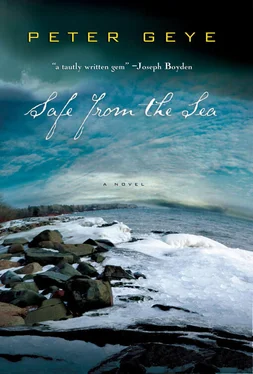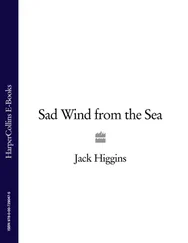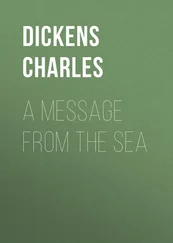“Didn’t the forecast warrant sitting tight for a few hours?” Noah asked.
“We could see it coming, we could feel it, too, but we never would’ve backed down on the basis of the weather reports we were getting.”
“Were they wrong?”
“Not wrong,” Olaf said. “When the wind turned around and the flurries started out of the northeast, we all got that sinking feeling. When the lake started crashing over the breakwater and the harbor water got choppy, we knew it was going to be a mean day, but it would’ve taken more than we saw to keep us in port.
“Anyway, we knew we could hug the lee of the Minnesota shore if we had to. There were also three ships ahead of us, a French freighter full of lumber. .”
“The Lachete ,” Noah said.
Olaf looked at Noah sideways. “Yeah, the Lachete . There was also one of our boats out there, the Heldig , and one of the boats from the Cleveland Cliffs fleet.” He tapped his bushy lip, thinking.
“The Prudence ,” Noah said.
“Was it you there or me?” Olaf asked.
Noah grinned.
“All three of those ships were updating us on the weather.”
“And each of them talked about seeking shelter from the time they left port. What did they tell you that made you think getting started was a good idea?”
“It didn’t matter what they told us. We were going to go or not go on the basis of Jan’s gut, not on what some goddamn Frenchman had to say about the wind.”
“What about the Heldig ? Didn’t you have any confidence in her?”
“You see, it was never a question of the confidence we had in the reports the other boats were sending. They were instruments, that’s it. It was always just a simple question: Did we feel like the Rag could handle what the lake was giving? If the answer was no for the Heldig or the Prudence or any of the other boats out on the Lakes, it didn’t necessarily mean it was no for us.” There was no vanity, no posturing, in what his father said. Noah knew this as simply as he knew the story itself.
Olaf gazed over his shoulder at the stove.
“Don’t tell me you’re cold.”
“No, no,” Olaf said, looking up at him. “I was just thinking about how it felt to be on that ship,” he said. “Standing on the bridge, even in the worst weather, it was easy to stick your chest out — to puff it up — because we knew that no matter what was in front of us, the Rag was behind us.
“She was six hundred and ten feet long. Sixty-two feet abeam. The hull alone — hull number 768—weighed five thousand tons. Loaded as she was, there were more than eighteen thousand tons— eighteen thousand tons— of steel lugging it up that lake under two thousand horsepower,” Olaf said, raising an eyebrow. “The bridge was forty feet above the surface of the lake, and still we had to keep the wipers going in order to see out the damn window. Despite all this we were making better than seven knots. Under normal conditions and with a normal load we would’ve made twelve knots, thirteen on a good day. But seven was a hell of a pull, all things considered.”
“Seven knots makes for a long day up Superior,” Noah said.
“Better than sixteen hours to Rock of Ages light.”
“As opposed to?”
“Ah, nine or ten,” Olaf said with a wave of the hand. “The point is she wasn’t normal.”
“What do you mean?”
“I mean she shouldn’t have been making that time. The other ships were thirty or forty miles ahead of us and they weren’t making a third of the time we were.” Again he shook his head. “But that’s just how the Rag was — above the weather, above the seas, those things just didn’t bother her, they didn’t stop her.”
“Why?”
Without a touch of embarrassment Olaf said, “She was a goddess, I guess.
“I remember storms she weathered that would’ve sunk other ships in a second. On Erie we sailed through the worst lightning storm I ever saw. Took two bolts right on deck. Lost one coaming thirty miles from safe harbor. The pumps were working that night.
“Another time we hit a real beast coming out of Whitefish Bay, heading up to Marquette. When we got to the Soo they were all set to close her down until it blew over, but when they saw we were next in line to pass, they let us up. Eight or ten boats had to wait out a twelve-hour blow in the St. Mary’s River while we chugged out onto the lake. Now that was a storm we might’ve sat out.
“I remember eating dinner that night. We had pork chops and applesauce — that’s it. Nothing that had to be cooked on the stovetop because we were rolling too goddamn much. The guy that did the baking was named Ed Butterfield — we called him Butter — used to put together this delicious rye bread. When the weather got rough, we’d soak thick slices of it in water and stick them under our plates to keep them from sliding around. It was an old trick. The next morning, when things calmed down a bit, I remember watching the porters hacking it off with hammers and spatulas.”
“Did you ever wait on the weather?”
“Sure we did, just not as often as other boats. Once or twice every couple of years we’d sit one out, but it took some kind of hell for that.”
“Should you have sat it out the night she wrecked?”
Olaf guffawed. “The winds were supposed to shift more to the east. If they had, we knew we wouldn’t want to face the middle of the lake. But we also knew we wouldn’t have to, see? We knew that if push came to shove we could take shelter in the lee of Isle Royale.” He was snaking his arm — as if it were the ship — into the imaginary estuary between the Canadian shore and the long finger of Isle Royale. “It was an uncommon course but one we’d taken before. And even if the wind shifted sooner rather than later, we knew we could muscle our way to safety.
“By the time we passed Rock of Ages light we’d been at it with that goddamn lake for almost seventeen hours. It was two o’clock in the afternoon and snowing so hard we couldn’t see the railing around the pilothouse deck.
“And Jan hated to be blind,” Olaf continued. “I mean, we knew exactly where we were and where we were heading, but when you can’t see your hand in front of your face and you’re putting up with the hell we were, you have a tendency to get a little hot. At least Jan did.
“He had a guy at every position every minute of that cruise — a man at the wheel, a man at the radar, a man at the compass, a man on the charts — it was like watching an orchestra. Jan would say, ‘My heading?’ and the watchman at the gyrocompass would say, ‘Four five, sir,’ and Jan would say, ‘Speed?’ and a voice would say, ‘Eight knots steady, sir,’ and Jan would boom again, ‘Is it clear?’ and the wheelsman at the radar would say, ‘Clear, sir,’ and Jan, ‘Position?’ and the wheelsman at the chart, ‘Captain, we are at such and such latitude and longitude, sir,’ and Jan, ‘How much water have I got between me and that goddamn island?’ and the wheelsman at the radar would say, ‘Sir, Isle Royale six point zero seven nautical miles bearing one hundred and forty-one degrees,’ and the wheelsman at the chart would settle it all, ‘Six point zero nautical miles to shoal water, sir.’ ” Olaf related the whole pilothouse episode as if he were a conductor himself, raising and wagging his fingers.
Noah, his heart actually beating a little faster, was sitting on the edge of the sofa. “And the water is coming over your deck and it’s snowing like the end of the world. .”
“And in the middle of it all, roaming from the charts to the compass to the wheel, Jan would take each piece of information and plug it into his internal calculator and come up with some goddamn equation the sum of which dictated every move he made. And despite his aggravation at being blind, despite that goddamn lake and the wind like a hurricane, he still managed it all without a hitch. I don’t think he ever even spilled any of his coffee.”
Читать дальше












